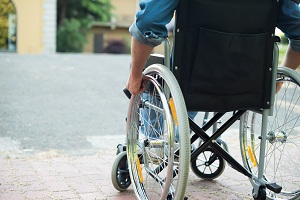
A new research suggests that workers associated with certain occupations are more susceptible to developing rheumatoid arthritis — an autoimmune disease that causes chronic inflammation of the joints and other areas of the body.
According to researchers at Karolinska Institutet in Sweden, work-related factors like noxious airborne agents may contribute to the pathogenesis of rheumatoid arthritis.

The study analysed information from 3,522 individuals with rheumatoid arthritis and 5,580 controls from the Swedish population-based EIRA (Epidemiological Investigation of Rheumatoid Arthritis) study.
The team of researchers led by Anna Ilar gathered information on environmental, genetic, and immunological factors collected from blood samples and questionnaires between 1996 and 2014.
They found that male workers associated with the manufacturing sector had a higher risk of developing rheumatoid arthritis than workers within the professional, administrative, and technical sectors (the reference group).

Within the manufacturing sector, male electrical and electronics workers and material handling operators were found to be two times more at risk of developing rheumatoid arthritis than the reference group, while bricklayers and concrete workers were three times more at risk of developing the autoimmune disease.
Among women, assistant nurses and attendants had a slightly increased risk of rheumatoid arthritis. But those in the manufacturing sector did not. This could be because relatively small number of women worked in the manufacturing sector compared with men.
“Previous studies have not considered these lifestyle-related risk factors to the same extent. Our findings therefore indicate that work-related factors, such as airborne harmful exposures, may contribute to disease development,” said Ilar.
The study was published recently in the journal Arthritis Care & Research.
Be a part of Elets Collaborative Initiatives. Join Us for Upcoming Events and explore business opportunities. Like us on Facebook , connect with us on LinkedIn and follow us on Twitter , Instagram.












